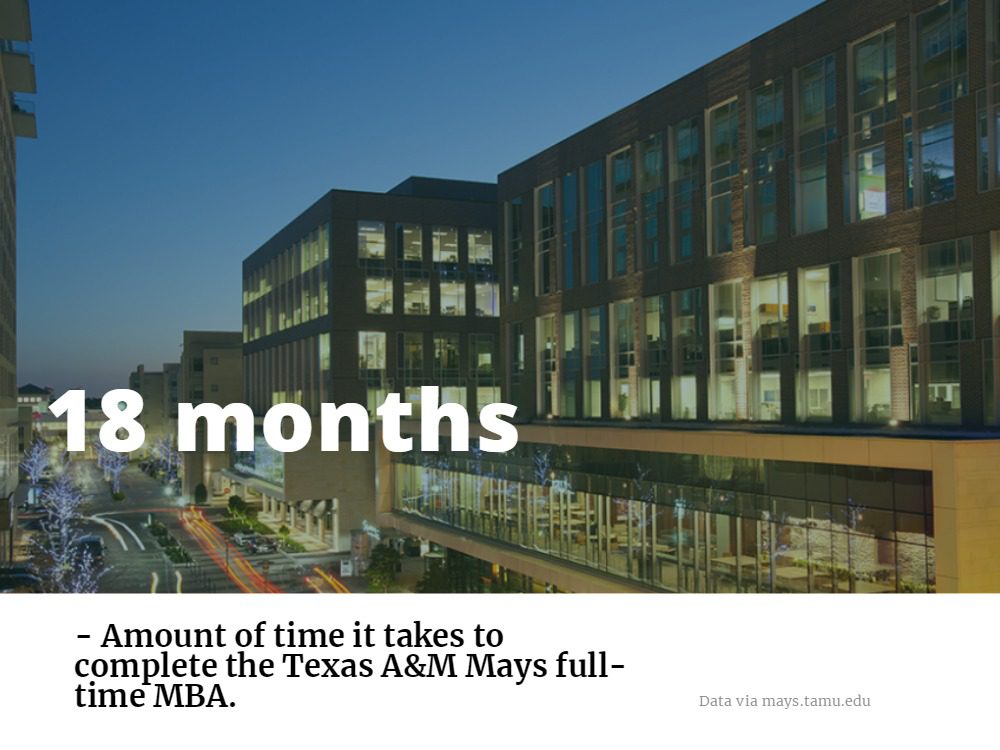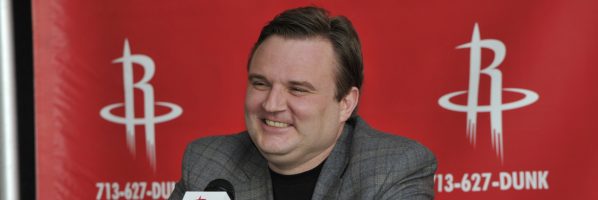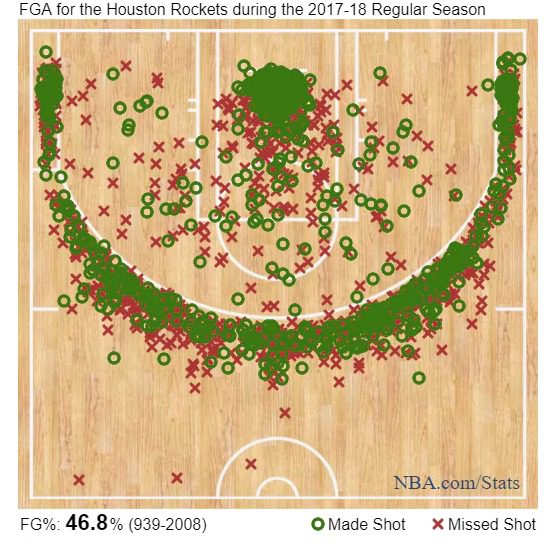What Are the Fastest MBAs You Can Earn in Houston?

Even if you’ve just started the process of choosing an MBA program, you’re probably already aware at the extreme variety in programs throughout the country. Just within one school, you might find MBAs that can be pursued full-time, part-time, online, on the weekends, in the evenings, and maybe even more.
What’s clear is that business schools understand the diversity of their students, and know that their program is a stepping stone to future career growth and success. And if students are willing to put in the work, schools are willing to cater to their goals and get that degree in hand as quickly as possible.
In Houston, Texas—as in metros across the country—it’s possible to earn a quality business education much faster than the typical, two-year full-time degree.
Finding the Fastest Houston MBA
Rice University – Jones Graduate School of Business
If you are an experienced professional who has already spent several years in the workforce, Executive MBAs—designed for professionals at the executive level—tend to be quicker degrees to earn than most. At the the Rice University Jones School of Business, the EMBA can be earned in just 22 months on alternating weekends. This also includes four week-long executive forums and a mandatory international forum. Given the low commitment during the week, this degree is perfect for working professionals who want to keep their jobs while still earning their degree quickly overall.
The Jones EMBA focuses on three main skills: leadership, strategy, and decision-making. Focusing on these three skills as crucial to executive success, the degree will build from a solid foundation of business knowledge and place all learning in a global context. EMBA students also have access to the Career Development Office at Jones, with works alongside students and alumni to meet their professional development goals.
Cameron School of Business – University of St. Thomas Houston
The MBA at St. Thomas Houston’s Cameron School of Business offers students the unique opportunity to design their own MBA program from the ground up, including how long they wish to be enrolled. While availability of various courses may ultimately determine how long a program takes, students with the drive can complete their degree in as little as one year (a fall, spring, and summer semester). To get an idea of how the required courses would break down for each semester, students can explore using Cameron’s interactive MBABuilder tool.
Overall, the Cameron MBA will require 36 hours of graduate level courses, which breaks down to 27 hours of core business classes, and nine hours of electives. Cameron offers nine concentrations for students to choose from if they decide to focus their degree, including one in Health Care Administration as a partnership through Texas Woman’s University. Find out more about the Cameron MBA here.
Mays Business School – Texas A&M University
The Texas A&M Mays Business School full-time MBA program takes just 18 months to complete, beginning each year in August. Since the program is just three semesters (fall and spring in year one, no required classes during summer, and a third and final semester the following fall), students can complete their degree in a year-and-a-half, with an open summer to pursue internships or other professional development opportunities. Students who wish to continue their program also have the option of a fourth semester in spring of year two, but this is entirely optional.

The full-time MBA at Mays is a rigorous program that offers students a unique and demanding educational environment, providing small cohorts and individualized attention for students, both from faculty and the school’s Career Management Center. The MBA program places an emphasis on preparing students for the workforce through experiential learning, offering students the chance to customize their degree through special certifications, electives, and study abroad opportunities.
University of Houston – Downtown
The Marilyn Davies College of Business at the University of Houston-Downtown offers students the chance to complete their degree in one, two, or three years. The focus of the Marilyn Davies MBA is for students to not put their professional careers on hold while earning their degree, and this is aided in UHD’s One Year program by allowing students to pursue the degree in a hybrid structure, both online and face-to-face. Students will complete their degree in one calendar year, taking classes three nights a week in this blended structure. Depending on the concentration, students may be required to complete 34-39 semester hours for their degree.
Students choose the UHD MBA for a number of reasons, including one of the lowest tuition rates in Texas, the flexibility of evening classes, and a modern and corporate driven curriculum. The school also offers a number of diverse concentrations for the degree, such as project management & process improvement, supply chain management, and investment management, among others.
Alumni Spotlight: Daryl Morey and Swapping Intuition for Analytics

In 2006, when Houston Rockets owner Les Alexander announced that MIT Sloan School of Management MBA, analytics expert, and relative NBA unknown Daryl Morey would eventually serve as general manager of the team, the basketball community was surprised, to say the least. A Hoopsworld headline, at the time, read, “Daryl Morey? Are You Serious?”
Though using quantifiable data to make business and strategic decisions across the majority of professional sports has become the norm, in 2006, it was far from standard practice, especially in the world of basketball. At the time, Michael Lewis’s book, Moneyball, was just three years old, and it only highlighted the use of analytics in baseball; perhaps the most straightforward team sport to quantify.
Now, 11 years into his career as a general manager, Morey’s use of analytics to guide NBA decisions ranging from draft picks, to whether a player should go for a three-point shot or a mid-range jumper (hint: take the three point shot) has made him a sports statistics pioneer.
Early Life and Career
While growing up in Medina, Ohio, Morey developed a love of sports. But, according to a profile in Slate, after reading articles written by alleged authorities making predictions for sports teams’ successes that proved way off base, Morey began to question the effectiveness of these experts. Shortly after this realization, Morey happened upon a book by the original sports statistics advocate, Bill James, author of the seminal 1977 book The Bill James Baseball Abstract. James’s data-based philosophy immediately resonated with Morey as the way to mold winning sports teams.
Though he knew early on that he wanted to devote his life to sports, Morey was uncertain of how to gain access to the exclusive business side of the industry. During his time at Northwestern University, Morey sent scads of letters to pro teams, begging for a shot at even the most low-ranking jobs. Each of these letters went unanswered. “So I decided at that point that I had to be rich. If I was rich I could just buy a team and run it,” Morey said.
It was this line of thinking that led the young midwesterner to apply to MIT’s Sloan School of Management. After earning his MBA from MIT in 2000, Morey pursued a career in consulting. Eventually this led to a job working for the Boston Celtics. It was during this time that Morey began applying a statistical model he had developed to size up amateur players to the actual draft. Just a couple of years later, Morey was approached about a managing position for the Houston Rockets, where he has now served as general manager for eleven seasons and has just signed on for an additional four years.
Philosophy and Contributions
At just 21-years old, Morey adapted Bill James’s Pythagorean Expectation, a formula used to predict how many games a team would win, to basketball. “I would have never guessed that you could adapt the Pythagorean to basketball,” James said.
In basketball, Morey is partially credited with normalizing the use of analytics in player acquisitions, as well as approach to the actual game. Under his leadership, the Rockets acquired franchise cornerstone James Harden in what is, in hindsight, already considered one of the more lopsided trades in basketball history. Morey was also instrumental in starting the annual MIT Sloan Sports Analytics Conference, a forum wherein students and professionals can exchange views on the role of analytics in the sports industry.
When asked about his thought processes in Northwestern Magazine, Morey said, “You don’t fool yourself, you take a lot of chances, you cut your losses quickly. That’s all you can do.”
Like the slow-crawl of acceptance sabermetrics toiled through in Major League Baseball, Morey’s analytical imprint on the NBA has routinely drawn the ire of some of the game’s most notable figures, including Hall of Famer, “golfer,” and Inside The NBA host Charles Barkley. In 2015, Barkley routinely chided `the Rockets’ paltry defensive efforts, noting Morey’s tactics of bringing in players seemed fairly basic.
Just two years later, however, and the Rockets are currently riding a 10-game win streak and sit atop of the vaunted Western Conference, with Harden earning potential MVP praise and point guard Chris Paul commanding one of the league’s best offenses. And Morey’s analytical emphasis on three point shooting and pick and roll sets, dubbed “Moreyball,” has never been more prominent. The Rockets lead the league—by far—in three-point attempts per contest, launching a blistering 43.2 per game. For context, the team with the second most three-point attempts per game, the Brooklyn Nets, take 33.8 per game—nearly 22 percent less than Houston.

Stats via NBA.com/Washington Post
The Rockets’ analytical trend may seem extreme, but the rest of the league is still taking notice. The average three point attempts taken per game, nearly a quarter of the way into the 2017-18 season, is the highest ever at 28.7 attempts per game per team; and those figures have gone up every year since 2012. If Moreyball remains a staple of the NBA offense, expect that figure to be broken again in 2019.
Other Pursuits
Morey has a love of musicals, and even proposed to his now-wife Ellen before a production of Grease. It makes sense then that the man the New York Times called a “wizard in the field of quantitative analysis,” has chosen to devote his time to producing a musical. The show, “Small Ball,” is slated to debut in 2018.
